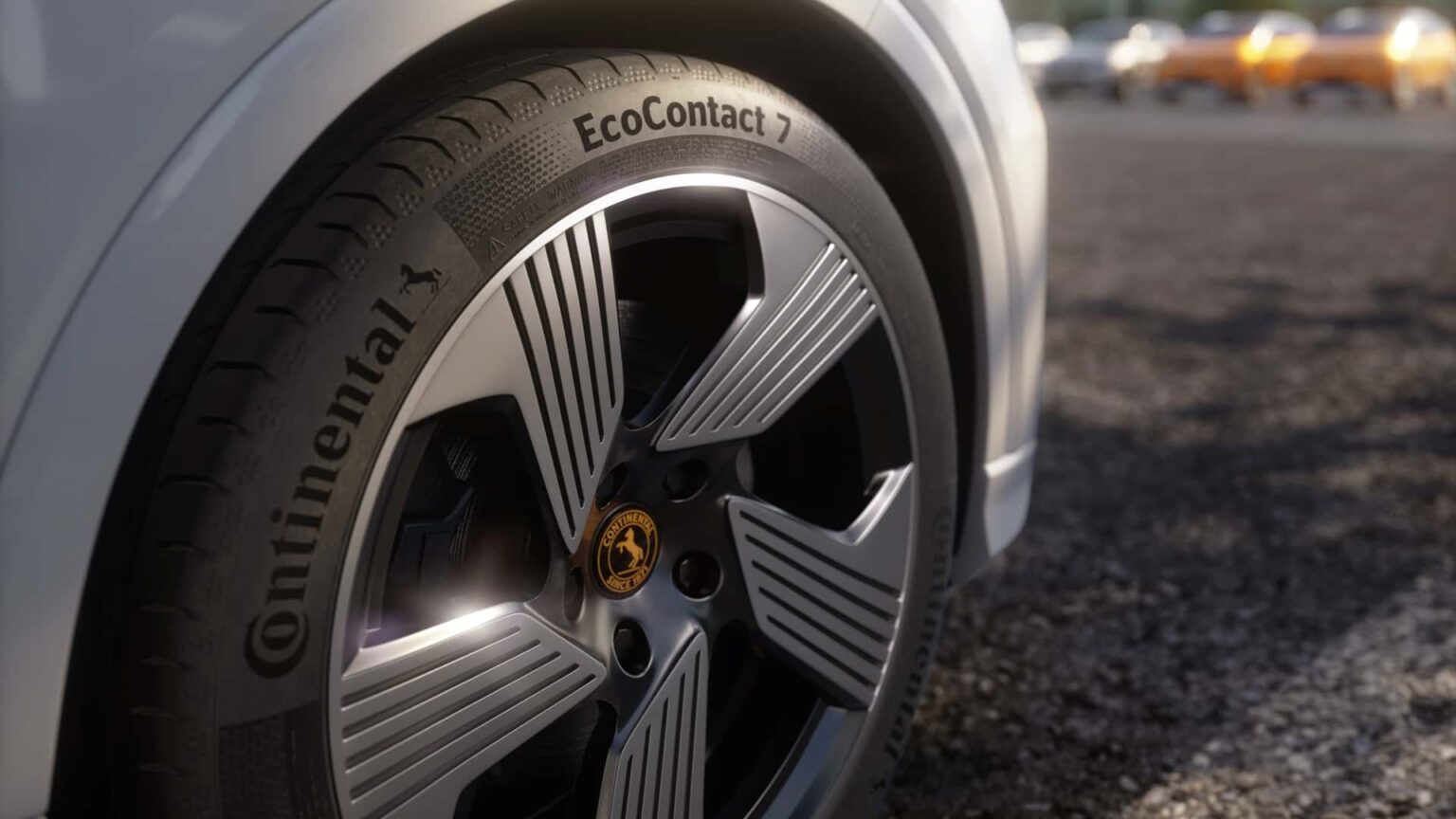Feast your eyes on the latest tires from Continental, the EcoContact 7 and EcoContact 7 S. As the name suggests, the primary mission for these tires is efficiency. To reach that objective, Continental engineers scoured the planet looking for new ideas. Apparently, inspiration struck somewhere on the back nine, as these tires incorporate a key design feature from golf balls, of all things.
The notion is intriguing. Golf balls are dimpled to give them better aerodynamic performance, and it’s been proven to work. Continental takes that concept and applies it to tires with Aerodimples—hundreds of tiny dimples placed all around the sidewall and the edge of the tread. According to Continental, this reduces air turbulence behind the tire, allowing it to roll while using less energy. Take that as you will.
Photo by: Continental

Photo by: Continental

Photo by: Continental
Dimples aren’t the only eco-friendly factors baked into the new tires. The company uses its new Green Chili 3.0 rubber tread compound, designed specifically for low rolling resistance. On the sport-focused EcoContact 7 S, the compound is tweaked slightly for more grip and better handling characteristics, notably in wet conditions. The inner sections of the tire use Smart Energy Casing tech that Continental says reduces friction, though specific measurements aren’t mentioned. The tread design further contributes to lower rolling resistance while also reducing road noise.
As you might expect, these tires are aimed at electric vehicles, where efficiency is paramount for range. However, they function perfectly fine for combustion-powered vehicles as well. In the European Union, these tires have a Class-A ranking for rolling resistance and Class-B for wet braking and road noise. It’s worth noting that these are considered summer-only tires.
It’s unknown if Continental will offer the EcoContact 7 or 7 S in North America. They’ve already been approved for OEM use on Volkswagen, Mercedes-Benz, and BYD vehicles, so we wouldn’t be surprised to see it happen.
Read the full article here



